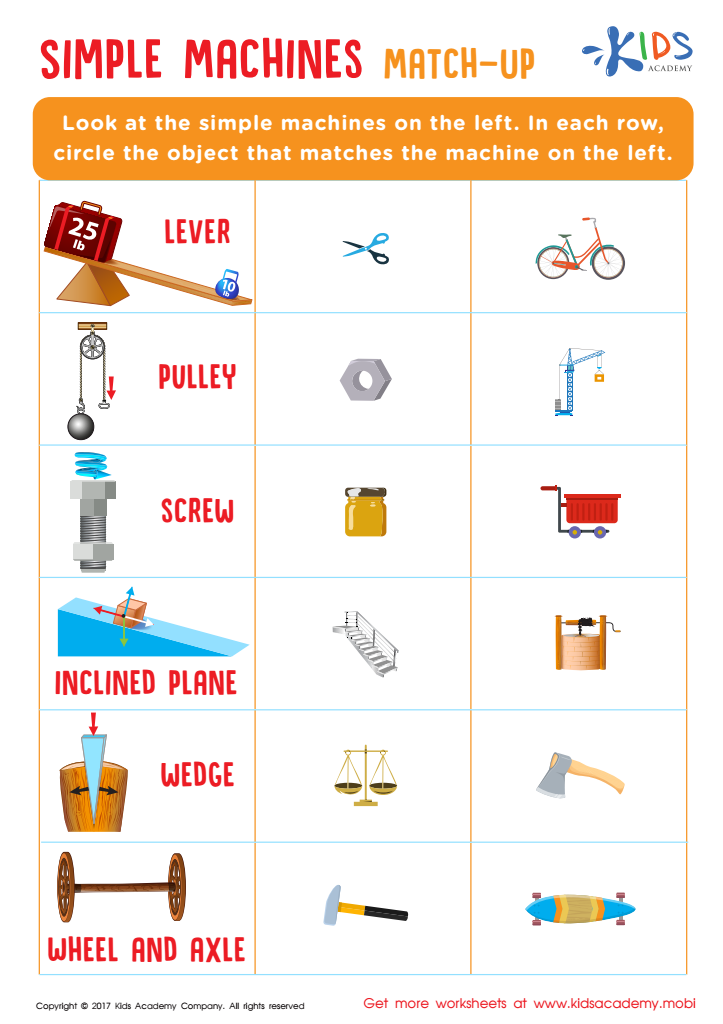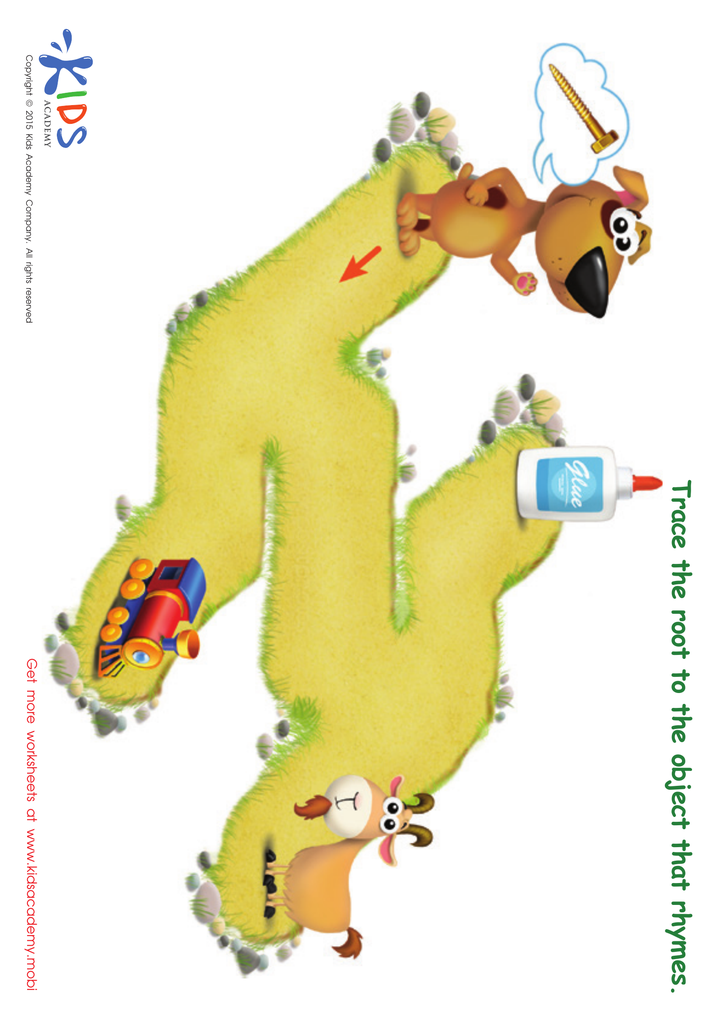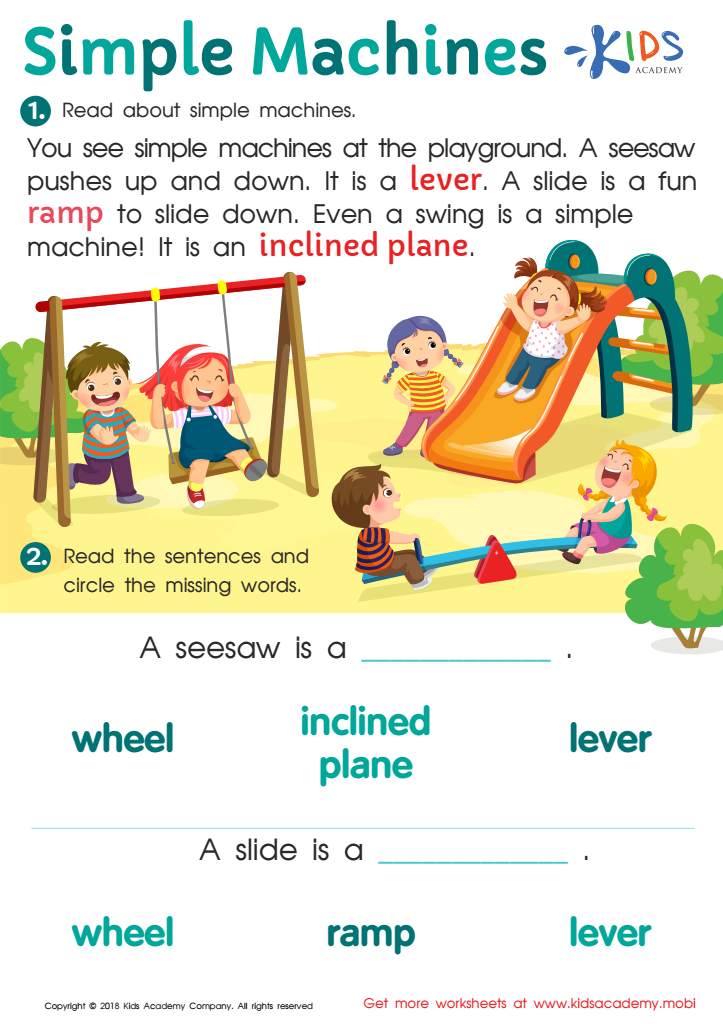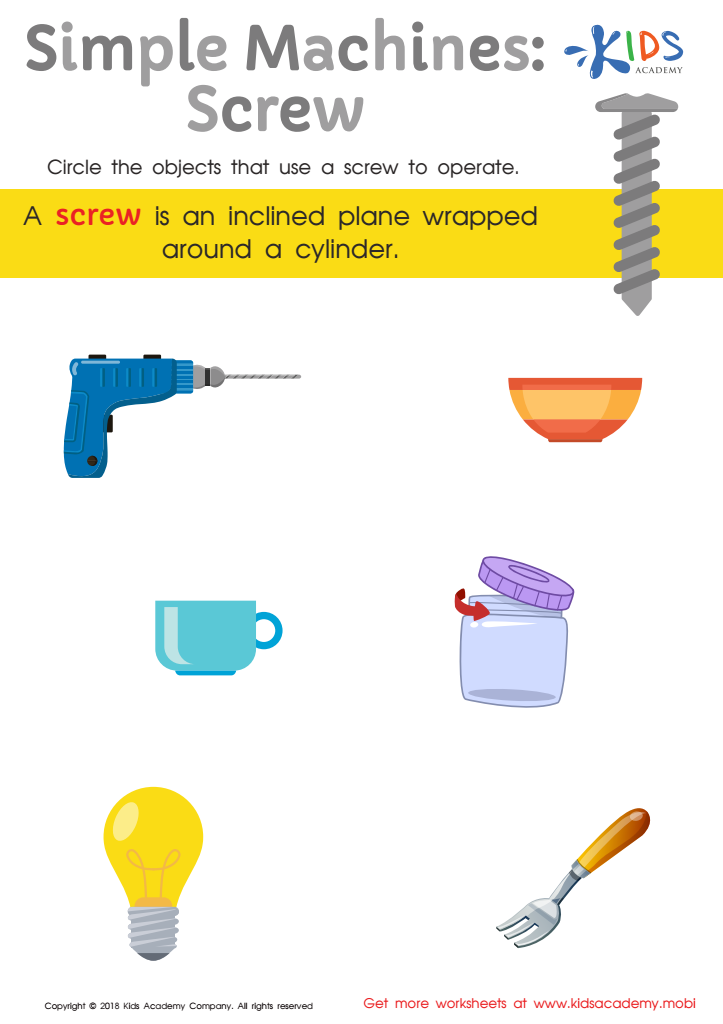Understanding Simple Machines Worksheets for Ages 6-7
4 filtered results
-
From - To
Unlock the world of simple machines for young learners with our "Understanding Simple Machines Worksheets for Ages 6-7." These meticulously crafted worksheets offer engaging, age-appropriate activities that introduce kids to the basics of simple machines like levers, pulleys, and inclined planes. Through hands-on exercises, vibrant illustrations, and easy-to-follow instructions, children will develop critical thinking, problem-solving, and STEM skills. Perfect for classroom settings or at-home learning, these worksheets make the fascination of mechanics accessible and fun. Empower your child to explore, experiment, and understand the fundamental principles that power everyday tools and gadgets!


Simple Machines Worksheet




Simple Machines Worksheet


Simple Machines: Screw Worksheet
Understanding simple machines, such as levers, pulleys, wedges, inclined planes, screws, and wheels and axles, is crucial for young children, ages 6-7. These basic devices are the building blocks of more complex machines and offer tangible connections to everyday experiences. When children begin to recognize simple machines in their environment, they develop a foundational appreciation for how things work, which fosters curiosity and critical thinking.
Encouraging children at this age to explore simple machines helps to build early problem-solving skills. For instance, understanding how a lever works can teach about balance and effort, concepts that can be translated to more abstract ideas in math and science later on. Additionally, simple machines are closely tied to the principles of physics, like force and motion, providing groundwork for more complex scientific studies.
Moreover, learning about simple machines can be incredibly engaging and fun. Hands-on activities, such as building a small pulley system or experimenting with inclined planes, allow children to learn through play. This form of experiential learning can ignite a lifelong interest in STEM (Science, Technology, Engineering, and Mathematics) fields.
For parents and teachers, teaching kids about simple machines is not just about imparting scientific knowledge, but also about shaping well-rounded, inquisitive minds that are prepared to tackle challenges and think creatively. investing in this early education sets the stage for academic success and practical problem-solving abilities.
 Assign to My Students
Assign to My Students





.jpg)


.jpg)











